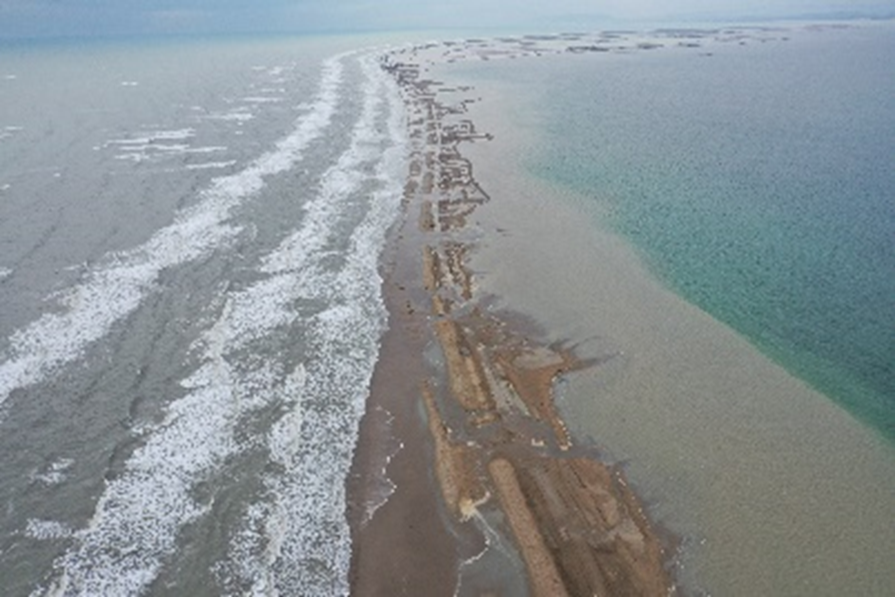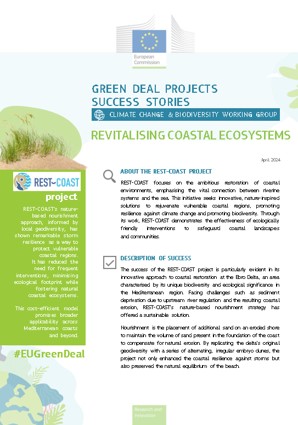REST-COAST focuses on the ambitious restoration of coastal environments, drawing on the vital connection between riverine systems and the sea. This initiative seeks innovative, nature-inspired solutions to rejuvenate vulnerable coastal regions, promoting resilience against climate change and tackling biodiversity loss. Through its work, REST-COAST demonstrates the effectiveness of ecologically friendly interventions to safeguard coastal landscapes and communities.
Description of success
The success of the REST-COAST project is particularly evident in its innovative approach to coastal restoration at the Ebro Delta, an area characterised by its unique biodiversity and ecological significance in the Mediterranean region. The Ebro Delta is facing challenges such as sediment deprivation due to upstream river regulation and the resulting coastal erosion. However, REST-COAST's nature-based nourishment strategy has offered a sustainable solution.
Nourishment is the placement of additional sand on an eroded shore to maintain the volume of sand present in the foundation of the coast to compensate for natural erosion. By replicating the delta's original geodiversity with a series of alternating, irregular embryo dunes, the project not only enhanced the area's coastal resilience against storms but also preserved the natural equilibrium of the beach.
This approach proved effective during the 2023 storms, as significant portions of the artificially supplied sediment were retained, demonstrating the potential of this method to support both coastal defence and ecological preservation in the Ebro Delta and similar environments.
Highlights
- The project's nourishment strategy, inspired by local geodiversity, has shown greater storm resilience, retaining significant sediment.
- This approach reduces the frequency of nourishments, which minimises the ecological impacts and carbon footprint.
- The creation of geo-diverse beaches fosters natural resilience, aiding in the self-organisation and sustenance of coastal ecosystems.
Outputs
REST-COAST has successfully implemented the nature-based nourishment technique in the Ebro Delta, demonstrating the real potential of the methodology to restore similar coastal systems. The project has demonstrated the transferability of this nature-based solution by extending sand dune nourishment to other Mediterranean beaches.
Impact
The nature-based nourishment strategy has proven itself to be cost-efficient by reducing the quantity of sediment and frequency of interventions required. It promises a lower ecological footprint and carbon emissions, aligning with sustainable coastal management practices. This successful model sets the stage for a broader application to other Mediterranean coasts and beyond.
Lessons
This novel methodology for sand dune nourishment shows that less management can lead to more success by developing interventions that mimic the formation of natural sand. Continued monitoring is needed to better understand the long-term performance of small-scale nourishments and the impact over their lifetime.
Lower levels of management and maintenance often lead to higher levels of stakeholder acceptance due to reduced costs and labour intensity. That being said, a dedicated effort needs to be invested in building relationships with local authorities in order to convince them to transition to new methods of sand dune management.
Other information
REST-COAST has published a video for further information on the Ebro Delta and nature-based solution that it has implemented.


